Cricket legend wants T20 double-headers and less time-wasting in Tests.
Australian cricket presents its Player of the Year with the Allan Border Medal. Just think about that. It’s not named after the boy from Bowral, whose feats with the bat will never be matched by anyone – ever. It’s “AB” who adorns the necks of our finest, and there are several reasons why. After all, the great man did average 50 even in an era of legendary West Indian fast bowling. His was a 16-year international career studded with glory and characterised by courage. He still holds the world record for consecutive Test appearances (153), and the most as captain. When he retired he was Australia’s greatest-ever run scorer in Tests; no surprise he’s often described as one of the most gutsy Aussie batsmen ever.
With a slight crouch as the bowler ran in, he’d steel himself before either pulling, cutting or hooking to whichever part of the ground he chose. As Richie Benaud once said of him, “He was a fierce fighter ... and that was when they were winning.” It’s been 20 years since Border retired from international cricket. Since calling it a day, he’s been a national selector ‒ in two shifts ‒ and sat on the board of Cricket Australia for many years. He’s also had several short stints in cricket coaching as well. He currently sits on the board of Cricket Queensland and the Brisbane Heat BBL franchise. He’s a cricket commentator for Fox Sports and recently joined the ABC Radio team as a caller. His new book Allan Border: Cricket As I See It has just hit the shelves, too. We were honoured to have a yarn with him.
They say you’re a long time retired. So has 20 years seemed like a while, or has it flown by fast enough to distract you from wishing you were still out in the middle?
I must admit the adrenalin flows a little bit if I’m at the ‘Gabba for the first day of the first Test, or down at the Boxing Day Test. The memories come back pretty quickly and you think, “Gee, it would be great to be running out there again.” But then, 20 years is probably long enough to start thinking, “I’ve had my go.” It’s good just sitting back watching the modern players.
What are some of the more interesting aspects of spending a day in the box doing radio commentary?
I have to be honest, I’ve only done the one stint, last year with the ABC during the Brisbane and Sydney Tests. I quite enjoyed radio in that the difference between radio and TV is you can expand on thoughts; you’re not rushing off to an ad-break at the end of the over on radio. On TV, the pictures are telling the story, rather than your words painting the picture, if you like. I quite enjoyed that subtle change on radio, it was quite good fun. I happened to be there for Kerry O’Keeffe’s last Test match radio broadcast; that was good fun watching and listening to him go about doing his thing. Jimmy Maxwell and Drew Morphett and the rest of the boys have been around for so long, they’re true professionals at what they’re doing. I suppose the fact that you physically have to sit down and put headphones on, you hope you don’t drop any “magic”, or say the wrong thing. I think there’s more likelihood of that in a TV sense; you might think that because they’ve gone to ad-break or something like that, that you’re not necessarily on air. Or the way the lip microphones work, you might put the mic down into your lap when you’re not on air without realising how sensitive the mics are. But thankfully I’ve survived those concerns so far.
Are your roles on Fox Sports’ match-analysis panel as well as Inside Cricket the easiest jobs in the world?
The Fox Sports panel is a really good, fun gig because of all the different personalities involved. We all get along well. We all played a little bit of cricket with each other; Damien Fleming and Mark Waugh, Brendon Julian and myself. It’s just enjoyable to sit down and shoot the breeze about the current game. I’ve really enjoyed it. I didn’t think I was going to enjoy the commentary box, so to speak, or the TV work in particular, but I’ve actually quite enjoyed it whenever I’ve had the opportunity.
Are you still “captain AB” to the other panel members?
There’s probably still a little bit of that (laughs), although the dynamic has changed. You have your captaincy-type scenario in a cricket team: you’re the boss-type of thing, whereas we’re all equals when we walk into that television studio today. But yeah, probably the fact that I was their captain and I’m still there, I do sense that a tiny bit from time to time ...
So on to the third medium then, publishing – did it present any interesting challenges to you while you worked on Cricket As I See It?
Having been through the process before, I had some idea about it, but I could never sit down and write a book myself; I haven’t got the skills to do that. But it was interesting sitting down, a bit like we’re doing now, and just chatting. The subjects, you thrash them out and it’s recorded. Martin Blake has done a very good job in taking down my thoughts in some readable form. It’s not necessarily a tedious process, it’s just long; sitting down for hours and hours on end. In some respects it’s quite good, reminiscing. A lot of the time my recall isn’t what it should be – did that happen on the ‘85 or ‘89 tour of England? Over a period of 20 years, a lot of thoughts and stories have blended. It’s hard to recall it all exactly. Fleshing it all out was quite good fun, looking at old scorecards etc to refresh your memory about what happened in a game or in a certain situation.
In the book you mention your frustration at the time being wasted in Test matches compared to the “quick game is a good game” nature of T20. Why is so much time wasted in Tests?
Because the processes for Test match cricket are more traditional. Things have crept into that form of the game which just aren’t allowed in T20, which is pretty strict: you’ve got 90 minutes to bowl your 20 overs, then you’ve got 90 minutes to receive your 20 overs back. You have one minute to get out onto the ground and penalties arise from not doing these things on time. It runs to a strict television model, whereas Test match cricket wasn’t initially designed for TV. Television is a very important part in all this, but I think even TV bosses would probably look at things and ask: do we need to be having these long breaks in play? Look, I get the DRS, but if we didn’t have it I wouldn’t be that worried. Seeing as though we do, let’s use it properly. A lot of the time players just aren’t ready. Say they’ve gone for a DRS, they stand around in a huddle, and if the decision doesn’t go the fielding side’s way, it’s another one-two minutes before they get themselves reset to bowl the next ball. If you have half a dozen of them in a day, there’s ten minutes of cricket. Then there’s the drinks being run on and off the ground all day. There seems to be a slowing down of the actual balls bowled in a Test match day. I’m not necessarily complaining about the pace of cricket; I think the players are very good in this day and age, you know, keeping the scoring rates good and the turnover of cricket very good, but we get 90 overs minimum in six and a half hours’ play, and they struggle to do that now. Whereas going back in time, occasionally they’d get in 100-120 overs in a day’s play ... in six hours. I know the medicos will tell you hydration is all very important, but as far as I know, no one has collapsed on a cricket field because they didn’t have a sip of water every five minutes.
You also talk about India’s domination of cricket officialdom, the type of power Australia and England once enjoyed. Is our complaining about India’s strength just sour grapes?
When you look at it really objectively, you sort’ve think, well, we shouldn’t be moaning too much. India is responsible for about 80 per cent of the game’s global income. If I’m running a business, and I have all my partners in place, and if my particular section brings in 80 percent of the income, I’m wanting a fair say in what goes on. You mightn’t be a dictator, but you’d be pretty close to it. That’s my fallback position: I think, well, fair enough. But they do need us to survive, because the business doesn’t run just by playing cricket in India. You need the sum of all parts working to the full package of what generates an income, but India, quite rightly, are asserting their power.
You suggest staging BBL double-headers to keep the tournament ticking over faster. Is this because it invades the space of other forms of the game, or because of fans’ short attention span?
I’ve watched the IPL grow. It’s absolutely fantastic where that’s been and is headed, but it used to be a six-week tournament ‒ now it’s an eight-week tournament. Can you keep your consumers interested in that product for that amount of time? If the fans are voting with their feet and eyeballs, then obviously the formula’s right, but sometimes I feel that maybe it would be better for our BBL to be run over a month, rather than six weeks. Just an observation. I suppose if there’s a good-quality game on each night and people are switching on, or attending, depending on what State the game is in, then the formula is right then, isn’t it? But in some tournaments, between the last round and the final, there’s a week. Do you need that sort of break?
I remember as a kid watching your “next plane home” episode with Craig McDermott and thinking: now there’s a leader. Who were your leadership inspirations?
I suppose for me, as I say in the book, I was very reluctant to do the job initially because of the way I was handed it in the wake of Kim Hughes’ resignation. He was and still is a very good friend of mine. I felt a bit uneasy about taking the role in those circumstances, and also I’d seen what the captaincy and the process had done to him; he just wasn’t enjoying his cricket – to the point where he resigned. I thought: why would you want to do this job? I was quite happy with my job in the team, just going about doing my thing. It took me a while to come to grips with it. But then you start thinking about it a little bit and you begin learning your lessons, from the different people you played under. I had Graham Yallop initially, then Kim, and then Greg Chappell. I’d played a bit of cricket with Ian; I’d made observations of him and had a lot of discussions with him about cricket, in pubs and around the place. You sort’ve pick things up as you go. There wasn’t any particular style. You are who you are: I grew into the job instead of just grabbing it, which I wish I did, initially. It was a slow process for me to get to the final product.
Everyone else has thrown in their two cents on Michael Clarke’s captaincy so far ... Is he doing a good job?
He’s been really good, Michael. He’s brought his own personality to it. He’s one of those guys who doesn’t like to let the game drift along; he’ll always take the attacking option rather than going into defensive mode. He’s learning as he goes. I do believe a hard lesson was learnt in Pakistan just recently where we chased the game. Michael’s captaincy has always been about attacking fields and an attacking mindset, on the batting side of things as well. We haven’t been successful on the Subcontinent; maybe it’s because we do chase the game too much over there – we don’t let it come to us enough. That’s where Michael is learning as a captain all the time. I think he’s been really good to date. I like his quest to keep the game moving forward, but sometimes I think you have to drop anchor and let the game come to you. I rate him very highly. I think he’s been very good. I think he’ll be there for a little while yet – body permitting.
You mention in the book that your first bat was a Bob Simpson- autographed bat – do you still have it in the poolroom somewhere?
No no, it’s gone to the great bat grave in the sky. I wasn’t particularly nostalgic about bats. I’ve kept a couple that I played particular innings with in Test cricket or for little periods but, the old bats, I don’t know, whether they were used as firewood or whatever back in the day ... Once they broke, that was it, gone. On to the next one.
You mention you were a pitcher in baseball when you were much younger. Do you think more cricket kids should be giving the game a try to develop their skills?
No doubt. I played baseball in the winter and cricket in summer. The crossover between the two sports is very evident. For example, you start learning the right technique of how to throw a ball. And then obviously when you get a little older and stronger, learn how to throw accurately. Then there’s the crossbat shot, the eye-hand coordination, hitting a moving ball ... they combine well, the two sports. I think if you play them both from an early age, it’s absolutely perfect; the cohesion really works a treat. The crossover, for me particularly, to be able to use it in one-day cricket, where you’re picking up the ball and having a shy at the stumps, and you’re needing to throw accurately or hard, that really worked well. The guys now, there are some who are naturals ‒ they’ll pick up the ball and throw it strongly anyway, but a lot of the guys don’t have very good, strong arms. They’re having to work really hard on that process. Whereas I was lucky; I played baseball before I played cricket. I started playing baseball when I was about six years old.
Never really looked back after our World Cup win in 1987, did we?
It was a bit of a watershed. We’d had no success as a group, there’d been a bit of chopping and changing of personnel in the team, probably from when I took over in ’84 until about ’87. In the end we had a young group of players that went on to have pretty good careers, but at the time you weren’t to know it. We went into that tournament as rank outsiders, but I was really happy with where we were at with the young blokes coming in. Players like Steve Waugh, Boon, Marsh, Jones, McDermott. Big Bruce Reid was playing back then, Tim May had come into the side as a spinner, Simon O’Donnell; young, very good players, particularly in the one-day arena. So we were a young side, but I tell you what, we had a fantastic work ethic. A lot of credit goes to Bob Simpson, the newly appointed coach of Australia around that time. He was very good for that group. Our preparation was outstanding going into that tournament. It’s amazing how little things can turn you one way or the other. I put it down to our very first match. Right at the end of our batting innings, I think it was Steve Waugh but it might have been Dean Jones. A long ball was hit over Ravi Shastri’s head at long on and landed pretty close to where we were sitting, where our dressing room seating area was. It landed over the boundary line – can’t remember whether they had ropes in those days ... might have just been a white line. We could see that it went about a metre over for a six, but it was signalled as four. Ravi wasn’t sure. We finished on 268. Our manager, a bloke called Alan Crompton, said, “No, no, I’m not having that, I’m going up to the match referee,” who, luckily for us ‒ sitting not far away from it ‒ had seen it. The match ref said, “Yeah, I’ll get that score adjusted and do whatever is necessary.” So our score went from 268 to 270. Of course, in reply, India makes 269 ... It was just one of those freakish scenarios. You win the game by one run or you lose it in the last over or something. It’s a real momentum killer or creator. It’s one run, but it means so much. Against the host side, India, for a young side it was a huge moment.
You’re not getting away from here without a 2015 Cricket World Cup prediction – so who will it be in the final?
It’s quite open. That’s the beauty of it this time around. All the sides would be rating themselves. I think South Africa will play Australia. South Africa are my favourites. They have a group together that’s very good. They have most bases covered. Very good fielding side, they bat long, have got some quality players through that batting line-up and are well led by AB de Villiers. Then there’s their fast bowling. They have two of the best going around in Morkel and Steyn, oh yeah, and Philander – three of the best going around, and a quality spinner in Imran Tahir. So it’s a pretty compelling argument for them. I like our chances, obviously playing at home. My smokey is New Zealand. I think they can sneak up on everyone, playing at home as well. They play their own conditions really well. Depending on how the draw falls, if they get a quarter-final or a semi in New Zealand, they’ll be hard to beat. That’s not discounting any of the other sides like India or England or Sri Lanka. All those teams, on their day, they can top you, easy. It’s a pretty open field, but I reckon South Africa would be favourites.
Related Articles
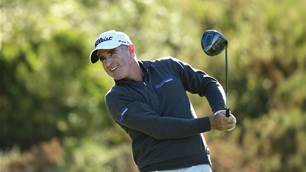
Video interview: Drinks With ... Matt Millar
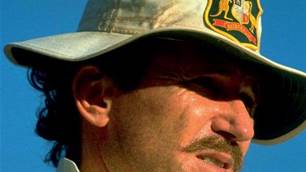
Allan Border shares views over a few cold ones
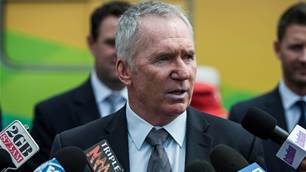
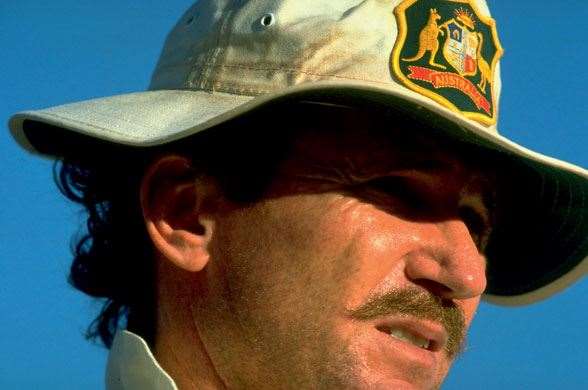
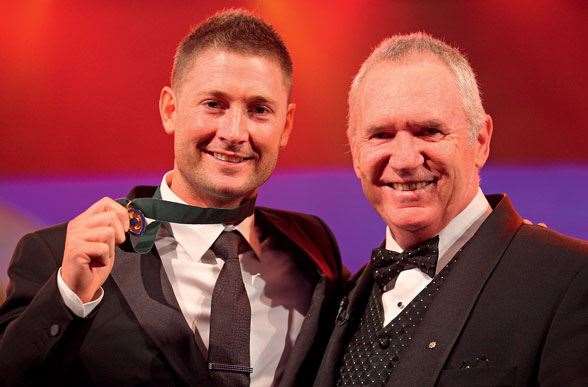
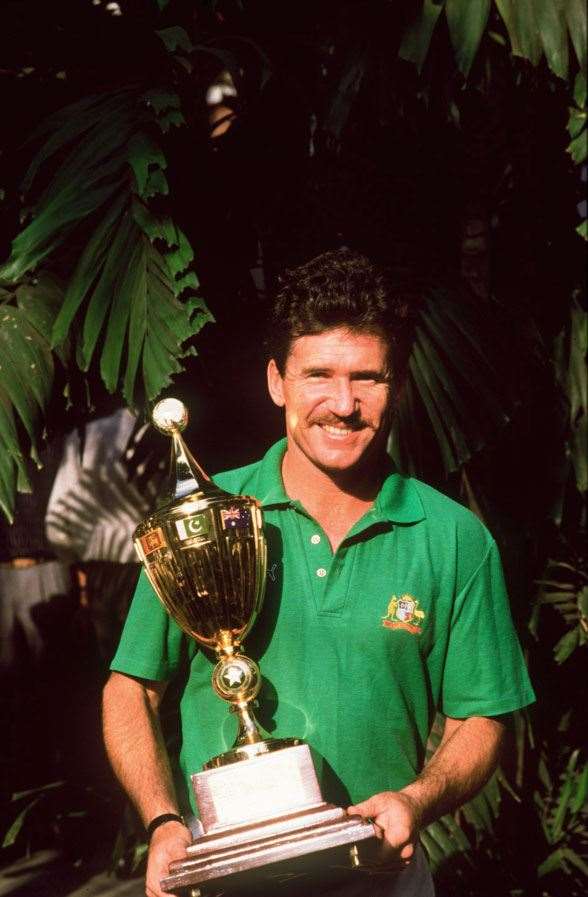
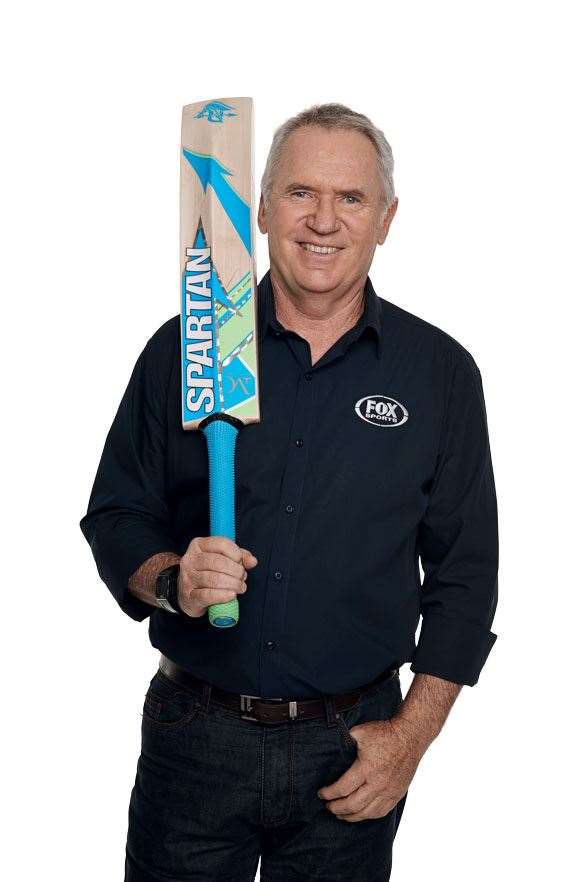
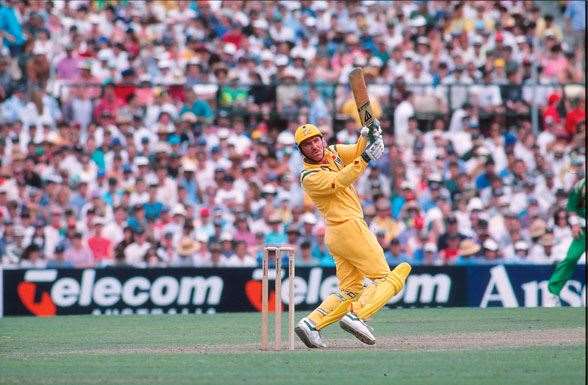
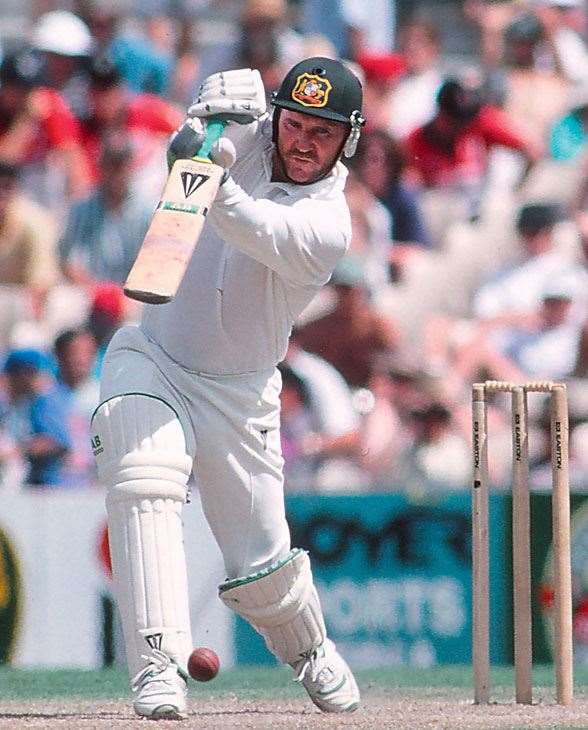
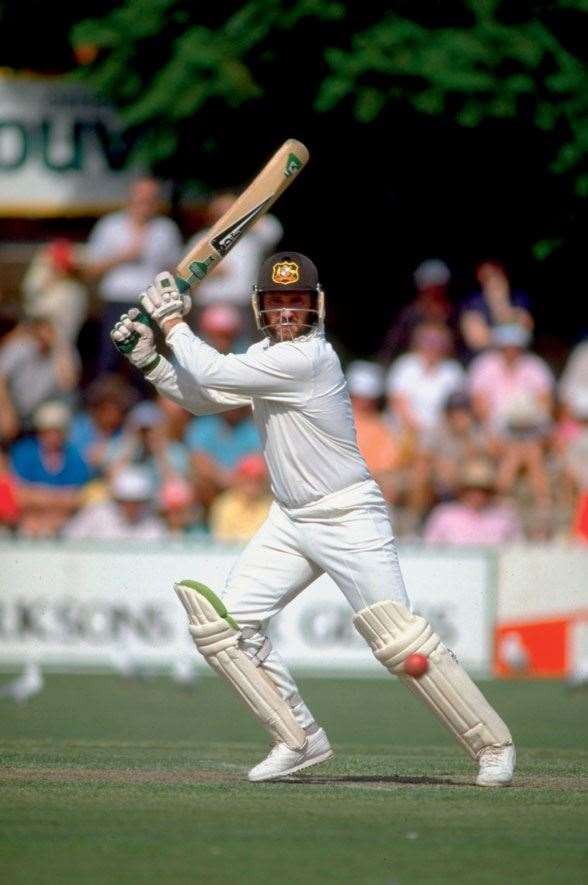
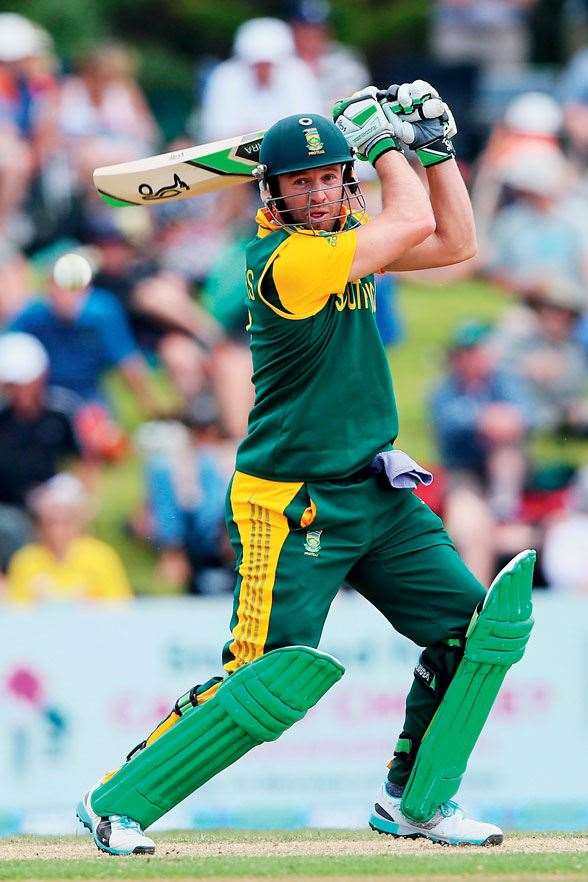
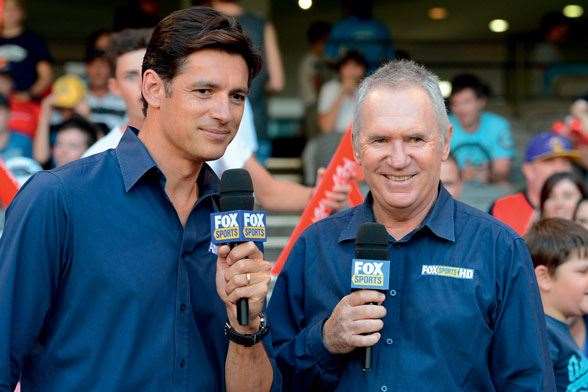
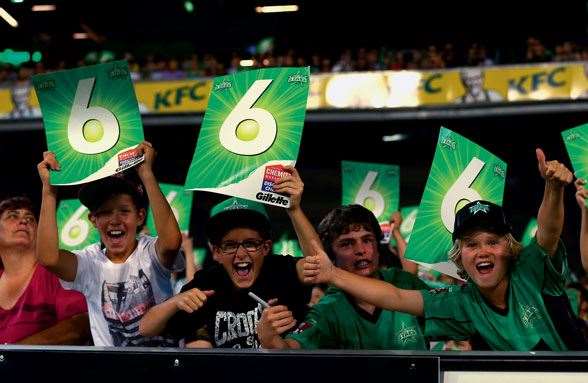
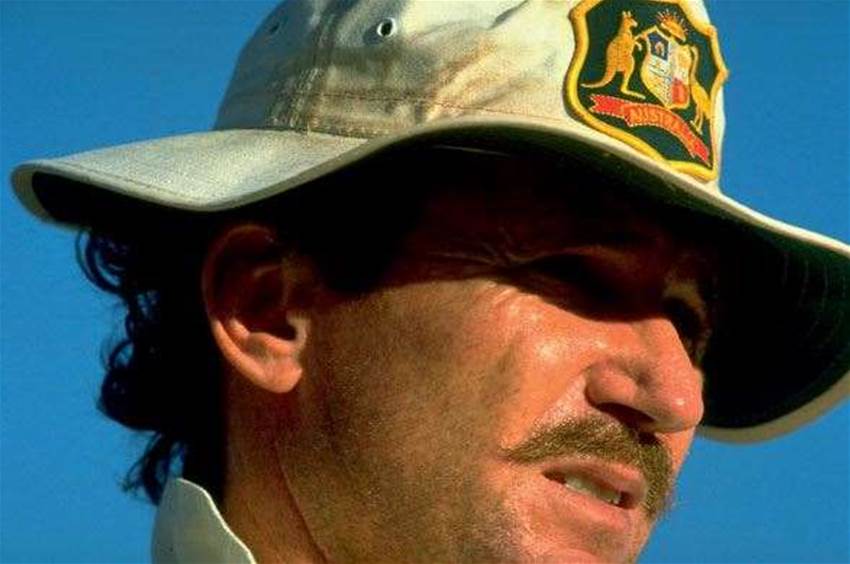

.png&h=115&w=225&c=1&s=1)









